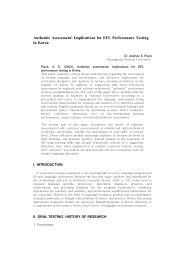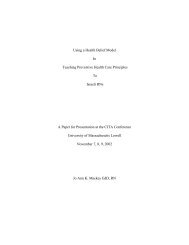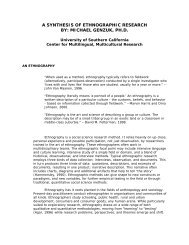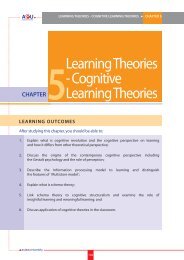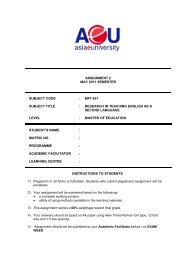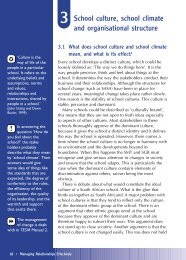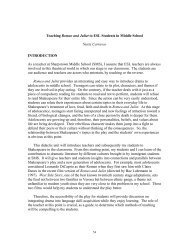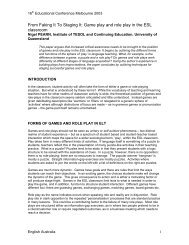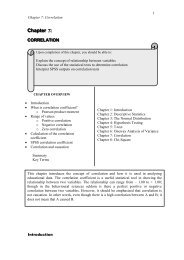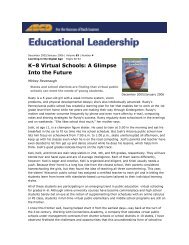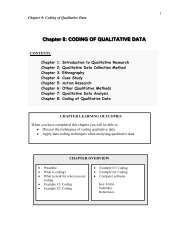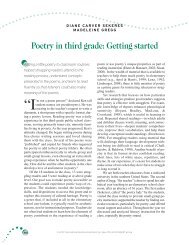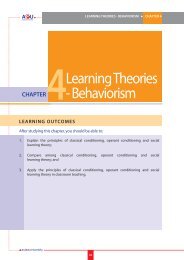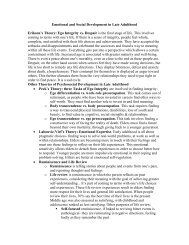Learning Theories - Cognitive Learning Theories CHAPTER
Learning Theories - Cognitive Learning Theories CHAPTER
Learning Theories - Cognitive Learning Theories CHAPTER
Create successful ePaper yourself
Turn your PDF publications into a flip-book with our unique Google optimized e-Paper software.
<strong>CHAPTER</strong> 5 l LEARNING THEORIES - COGNITIVE LEARNING THEORIES<br />
5.3 INfORMATION PROCESSING MOdEL (IPM)<br />
The Information Processing Theory approach to the study of cognitive development<br />
evolved out of the American experimental tradition in psychology. Information processing<br />
theorists proposed that like a computer, a human mind is a system that processes information<br />
through the application of logical rules and strategies. The mind has a limited capacity for<br />
the amount and nature of the information it can process.<br />
Figure 5.12: Information processing model<br />
The terminology of the Information Processing Model as illustrated in Figure 5.12<br />
emphasizing the significance of “encoding” (input) of information, the “storage” of<br />
information, and the “retrieval” (access) of information. The language and the metaphor<br />
often used is one of the minds of as computer. IPM theorist, U.Neisser, maintains that the<br />
correlation between cognition and computers is a powerful one(Benjafeld, 1992 in Tan, 2003).<br />
Most IPM theorists see the computer as only a metaphor for human mental activity.<br />
Finally, just as the computer can be made into a better information processor by<br />
changing its hardware and its software (programming), so do children who become more<br />
sophisticated thinkers through changes in their brains and sensory systems (hardware) and<br />
in the rules and strategies (software) that they learn.<br />
Describe the features of three stages of memory storage in Information<br />
Processing model.<br />
113<br />
i.<br />
113



